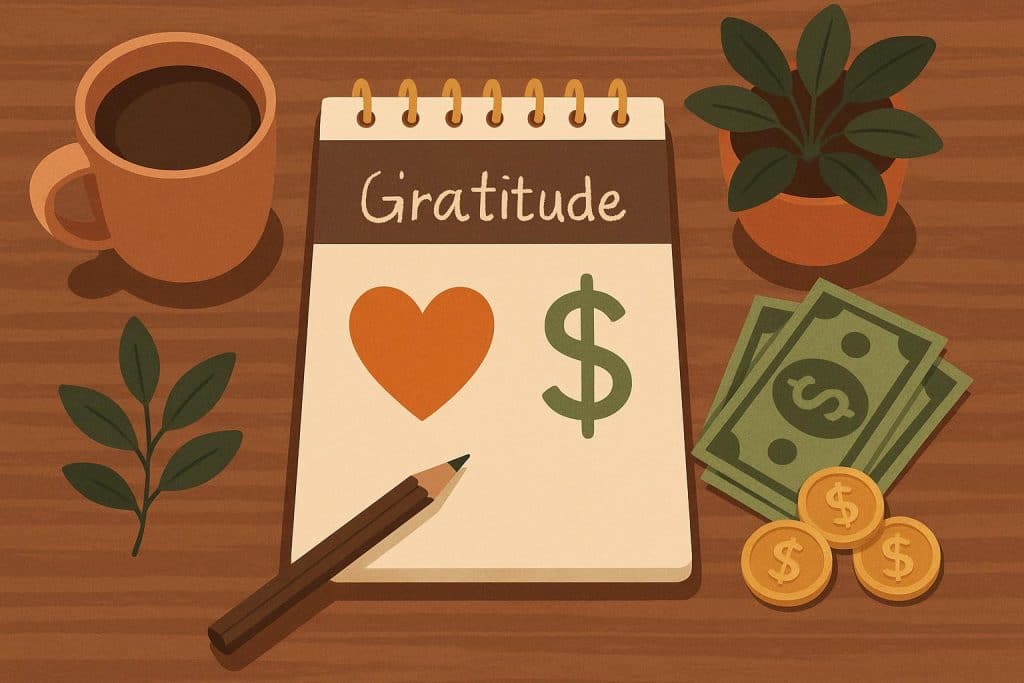The Connection Between Gratitude and Finances
When people think about money, gratitude is not usually the first thing that comes to mind. Yet cultivating gratitude can completely transform how we approach our finances. Instead of focusing only on what is lacking, gratitude helps us see the value of what we already have. This mindset reduces stress, encourages better decision making, and creates a healthier relationship with money. Even when dealing with financial challenges such as debt consolidation, practicing gratitude can shift perspective from frustration to opportunity. It is about acknowledging progress rather than being consumed by setbacks.
Why Gratitude Brings Clarity
Gratitude clears away much of the noise that comes with financial worry. When you feel thankful for the basics—like a steady paycheck, a roof over your head, or even small comforts—it becomes easier to make intentional financial choices. Instead of rushing into purchases to fill an emotional void, gratitude reminds you that many of your needs are already met. This clarity leads to smarter decisions, whether it is sticking to a budget or avoiding impulse spending.
Reducing the Stress of Comparison
Money stress often comes from comparing ourselves to others. Seeing friends take vacations, buy new cars, or post about expensive experiences can create feelings of inadequacy. Gratitude is the antidote to this cycle. By focusing on what you already have, you reduce the need to measure your life against someone else’s highlight reel. Gratitude encourages contentment, which helps keep spending in check and prevents unnecessary debt driven by comparison.
Encouraging Long Term Habits
A grateful mindset supports habits that pay off in the long run. When you appreciate what you already have, you are more likely to care for it and make it last. This might mean maintaining a car instead of replacing it quickly or cooking at home more often instead of dining out. These small habits not only save money but also reinforce financial stability. Over time, gratitude becomes the foundation for consistency, which is what builds real financial progress.
Strengthening Relationships Through Gratitude
Money is not only a personal matter—it also impacts relationships. Gratitude strengthens connections by reducing conflict and fostering cooperation. Couples who express thankfulness for each other’s efforts are more likely to work as a team on financial goals. Families who practice gratitude often find more joy in shared experiences rather than material things. These positive relationships support healthier financial choices, since money becomes less of a source of tension and more of a tool for shared purpose.
Improving Emotional Well Being
Financial stress can weigh heavily on mental health, fueling anxiety and even depression. Gratitude acts as a powerful counterbalance. By focusing on what is going well, even in small ways, gratitude lowers stress and increases resilience. This improved emotional well being creates space for clearer thinking and problem solving. When you feel calmer, you are more likely to take constructive steps like building a savings plan or negotiating with creditors, rather than avoiding financial issues altogether.
Practical Ways to Cultivate Gratitude With Money
Building gratitude into your financial life can be simple. Start by keeping a gratitude journal where you list three things you are thankful for each day, including financial ones. Another approach is to pause before each purchase and reflect on whether it aligns with your values. You can also make a habit of celebrating financial wins, no matter how small—like paying off a credit card or cooking at home for a week. Over time, these practices shift your mindset from scarcity to appreciation.
Gratitude and Future Planning
Gratitude does not mean settling for less; it means making peace with the present while planning wisely for the future. By appreciating what you have now, you build confidence to save for what matters most, whether that is retirement, education, or a home. Gratitude reduces the fear that drives impulsive decisions, allowing you to take a calm and steady approach toward long term goals. This balance between thankfulness and ambition creates a sustainable financial journey.
Final Thought
Gratitude is more than a feel good practice—it is a tool for building a positive money mindset. By shifting focus from what is missing to what is present, gratitude creates clarity, reduces stress, and fosters healthier financial habits. It strengthens relationships, improves emotional health, and provides a steady foundation for long term planning. Money will always bring challenges, but when paired with gratitude, it can also become a source of peace and empowerment. By choosing thankfulness, you not only improve your finances but also enrich your life as a whole.


